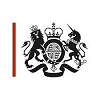Bioinformatician
Publicerad 2024-07-03
Job summary
National Location: �38,724 - �44,393
Outer London Location: �40,721 - �46,231
Inner London Location: �42,716 - �48,068
The post holder will take a lead role in developing and implementing the genetic and phylogenetic analysis of vaccine-preventable viruses within the remit of the Immunisation & Diagnosis Unit (IDU), including measles, rubella, mumps, and varicella zoster. S/he will support the work of the unit as a WHO Global Specialised Laboratory for measles and rubella in the analysis of measles and rubella sequences, including contributing towards the maintenance and development of the UKHSA-hosted WHO databases for measles and rubella. S/he will work with colleagues in the Bioinformatics Unit, in developing methodologies for analysing and recording a wider range of viral pathogens of public health importance and undertake delegated management of staff and visitors as required.
Job description
The UK Health Security Agency (UKHSA) operates a hybrid working model where business needs allow. This provides us with greater flexibility about how and where we work, to get the best from our workforce. As a hybrid worker, you will be expected to spend a minimum of 60% of your contractual working hours (approximately 3 days a week pro rata, (averaged over a month) working at one of UKHSA's locations (Birmingham, Leeds, Liverpool, and London). Specialist or regional roles will be based at the appropriate UKHSA site. For certain roles, some additional flexibility may be possible, which will be agreed upon with the hiring manager based on individual requirements and business needs.�
*Please be aware that this role can only be worked from within the UK and not overseas. Relocation expenses are not available.* �
Bioinformatics
Responsible for analysis and interpretation of viral sequences within the remit of the unit.Undertake whole-and/or partial genome analyses of virus sequence data to address evolutionary and epidemiologicalResponsible for reporting genomic information to the WHO, ECDC and other appropriate authorities.Responsible for reviewing developments in bioinformatics and their application to the unit and the wider WHO Global Measles and Rubella LaboratoryProvide expert and specialist advice on scientific and technical solutions forResponsible for the secure handling, storage and retrieval of sensitiveTroubleshooting/fault finding on software programmes specific to bioinformatics needs of theInformation Technology
Ensure the validity of information generated from the laboratory information systems and to design, organise and participate in data qualityKeep up to date with developments in IT with respect to the UKHSA and technical developments and to attend appropriate courses orBe involved in the development of web-based strategies for dissemination of information at directorate and local UKHSA level and act as a Web Administrator for such web sites as needed in the unit.Be involved in documenting and testing software and information systems in the context of service accreditation as provided by the United Kingdom Accreditation Service (UKAS).Professional Development
Identify, discuss and action own professional performance and training / development needs with your line manager through appraisal / individual development plan. Attend internal / external trainingParticipate in all mandatory training as required, e., fire safety, information governance and all other mandatory training.Person specification
It is important through your application and Statement of Suitability of 1000�words that you give evidence and examples of proven experience of each of the essential criteria (for full details of all essential criteria please refer to the attached job description):
Essential
A Higher Degree in Bioinformatics/Computer Science or related subject or significant relevant experience in bioinformatics.Experience in interpreting viral sequences/genotyping and phylogenetic analysis.Experience developing web-database applications and web-analysis platforms for sequence data.Experience in using Bayesian analysis methods such as BEAST for interpreting viral evolution.Experience of Illumina and/or ONT datasets and proficiency with standard bioinformatics and statistics tools for sequence assembly, alignment, editing and analysis.Experience using code versioning and testing tools.Expertise in large-scale analyses of molecular sequence data Programming/scripting experience (, Python/R/C). Ability to develop and maintain pipelines.Demonstrated experience of coordinating projects in complex and challenging environments.Experience of drafting briefing papers and correspondence.Comprehensive knowledge of project principles, techniques and tools, such as Excel and Access database.Ability to analyse, summarise and interpret complex epidemiological data.Experience of creating and giving presentations to a varied group of internal and external stakeholders.An understanding of and commitment to equality of opportunity and good working relationships, both in terms of day-to-day working practices, but also in relation to management systems.Desirable
A PhD in Bioinformatics, Computer Science or Life Sciences.Research experience in virology.Experience in using Bayesian analysis methods such as BEAST for interpreting viral evolution.Good knowledge of web technologies HTML, CSS, JavaScript, etc.Proven skills in database design, architecture and implementation on a variety of platforms.Experience in web programming.Benefits
Working for the UKHSA�
For more information on the UKHSA please visit: �
At the United Kingdom Health Security Agency (UKHSA) our mission is to provide health security for the nation by protecting from infectious disease and external hazards.� We are a trusted source of advice to government and to the public, focusing on reducing inequalities in the way different communities experience and are impacted by infectious disease, environmental hazards, and other threats to health.
Our mission is challenging, innovative and in the spotlight. We will work to ensure our people have the diverse skills, experiences and backgrounds we need to thrive, that our employees are representative of the communities we serve and feel valued and enabled to play their part in delivering our work.
Creating our working culture is an ongoing process which we are developing by listening and learning together, hearing and acting upon diverse voices and opinions to develop a common sense of identity and effective ways of working.
Learning and development tailored to your roleAn environment with flexible working optionsA culture encouraging inclusion and diversityA with an average employer contribution of 27%Range of health and wellbeing supportAny move to UKHSA from another employer will mean you can no longer access childcare vouchers. This includes moves between government departments. You may however be eligible for other government schemes, including Tax Free Childcare. Determine your eligibility at �













